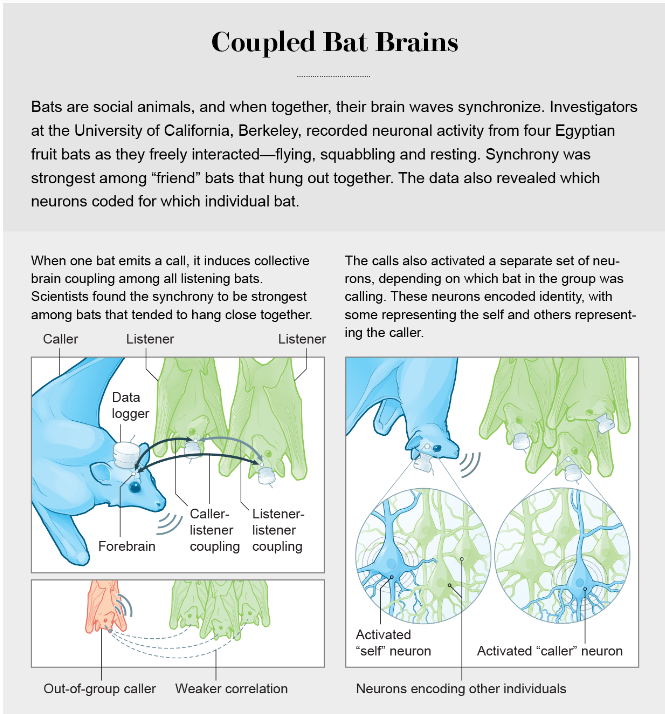From the We're on the Same Wavelength Files: A Scientific American article:
Brain Waves Synchronize when People Interact
The minds of social species are strikingly resonantCollective neuroscience, as some practitioners call it, is a rapidly growing field of research. An early, consistent finding is that when people converse or share an experience, their brain waves synchronize. Neurons in corresponding locations of the different brains fire at the same time, creating matching patterns, like dancers moving together. Auditory and visual areas respond to shape, sound and movement in similar ways, whereas higher-order brain areas seem to behave similarly during more challenging tasks such as making meaning out of something seen or heard. The experience of “being on the same wavelength” as another person is real, and it is visible in the activity of the brain.Such work is beginning to reveal new levels of richness and complexity in sociability. In classrooms where students are engaged with the teacher, for example, their patterns of brain processing begin to align with that teacher's—and greater alignment may mean better learning. Neural waves in certain brain regions of people listening to a musical performance match those of the performer—the greater the synchrony, the greater the enjoyment. Couples exhibit higher degrees of brain synchrony than nonromantic pairs, as do close friends compared with more distant acquaintances.
But how does synchrony happen? Much about the phenomenon remains mysterious—even scientists occasionally use the word “magic” when talking about it.Given that synchronized experiences are often enjoyable, researchers suspect this phenomenon is beneficial: it helps us interact and may have facilitated the evolution of sociality. This new kind of brain research might also illuminate why we don't always “click” with someone or why social isolation is so harmful to physical and mental health.
The article goes on to describe an experiment where a person in one of two fMRI machines 130 miles apart were talking to each other in 30 second time periods. They made up an evolving story in their time allotments. Over time, their brains came into synchrony.
It that magic? Of course not. As the image above indicates, when people do not interact, their brains do not synchronize. From the jointly made-up story experiment, it is clear that brain synchrony can arise from two people talking over the phone. One can imagine that synchrony can also arise from watching other people.
So, when I talk about politics originating in cognitive biology and social behavior, don't underestimate the social behavior part. This line of research shows that social interaction directly influences cognitive biology when brain synchrony comes into play.
Think about that a moment. Consider a person unconsciously cognitively biased about an issue talking politics with an person unbiased, e.g., unfamiliar, with that issue. Could the unconscious biased brain influence the unbiased brain via synchrony? I can't see why that would be impossible. And, consider the data from bats summarized in the picture below:
In my opinion, if one does not understand at least some cognitive biology and social behavior science, one cannot understand politics.


No comments:
Post a Comment